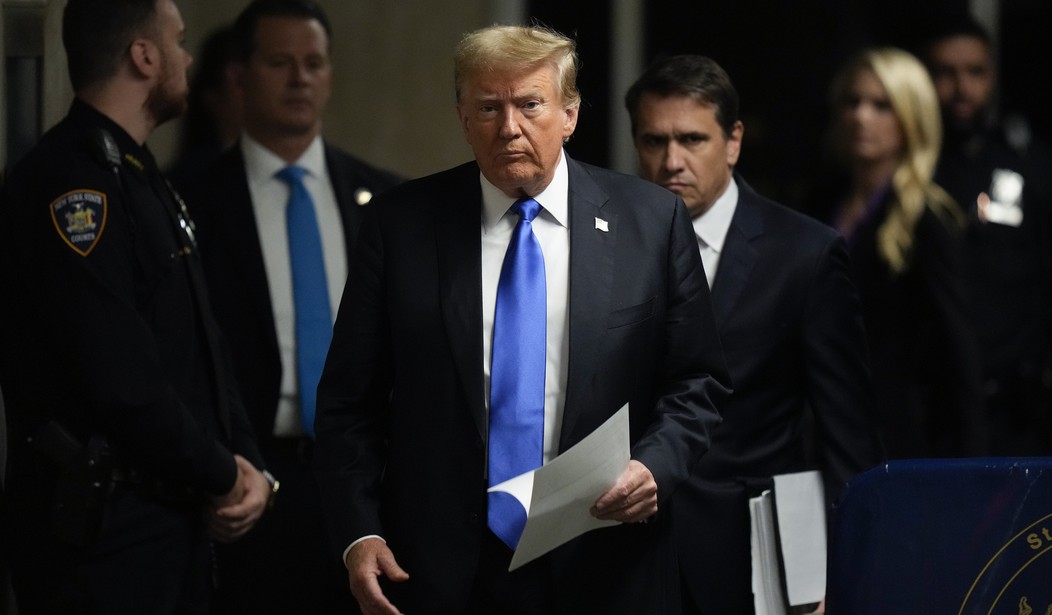Donald Trump has officially been convicted by a jury in what I consider to be the biggest political show trial to ever take place in this country; guilty on 34 felony charges of falsifying business records. I encourage you to check out all of my colleagues at sites like HotAir, RedState, and Townhall for extensive coverage on the verdict, its impact, and the aftermath. Most of that will fall outside of our Second Amendment content, but there is one angle worth talking about... even if it's probably not Trump's biggest concern at the moment.
While his felony conviction may or may not have an impact on his electoral chances (and quite possibly end up working to his advantage), it's now officially resulted in Trump losing his Second Amendment rights. In fact, for the first time in U.S. history there's a very good chance that the next commander-in-chief will be in charge of the military while prohibited from touching a firearm or a round of ammunition.
I think there's an incredibly strong change that Trump's conviction will be thrown out on appeal, but that could still be years away. In the meantime, the Supreme Court is probably Trump's best bet to keep his Second Amendment rights intact, and the Court's impeding decision in U.S. v. Rahimi provides a perfect vehicle for the justices to give Trump and others convicted of non-violent felonies relief from current federal law.
In Rahimi, the justices are expected to decide whether someone subject to a domestic violence restraining order can be prohibited from possessing or purchasing a firearm. We don't know how the Court will rule, but it's certainly not out of the question that a majority will conclude that Zachey Rahimi and others in similar circumstances can be barred from owning a gun; not solely because of a domestic violence restraining order, but based on a particularized finding of "dangerousness".
If the Court adopts that point of view, non-violent felons like Trump, or those convicted of lesser non-violent crimes that were punishable by more than a year in prison would likely be able to keep ahold of their Second Amendment rights. One of the cases that the Court has held in conference pending the Rahimi decision is Garland v. Range, which deals with a Pennsylvania man who pled guilty to falsifying his income on a food stamp application more than two decades ago. Bryan Range admitted to a misdemeanor offense and was sentenced to probation, but because the crime was punishable by more than a year behind bars he still lost his Second Amendment rights. If the Court adopts a "dangerousness" test, folks like Range (and Trump) stand a much better chance of regaining those rights. Committing a paperwork crime is far different than engaging in a carjacking, home invasion, or cold-blooded murder, so why should every felony (and some misdemeanors) be viewed the same when it comes to depriving people of a fundamental civil right?
Based on the questions posed by the justices during Rahimi's oral arguments, there's a very good that a majority of the Court finds a way to uphold Rahimi's prohibited status. The question is how broadly their decision will be, and whether the Court will use this case as an opportunity to put establish that some finding of "dangerousness" is necessary before someone's Second Amendment rights can be taken from them. Of course there's a case to be made that once someone has served their sentence all of their rights should be restored, no matter how violent or heinous their crimes may have been. But no matter how sympathetic I am to that argument, I don't think there are five votes on the Court for that position. Still, SCOTUS does have the chance to advance the interests of justice in Rahimi by providing an avenue for Donald Trump and others to regain their Second Amendment rights after a felony conviction.









Join the conversation as a VIP Member